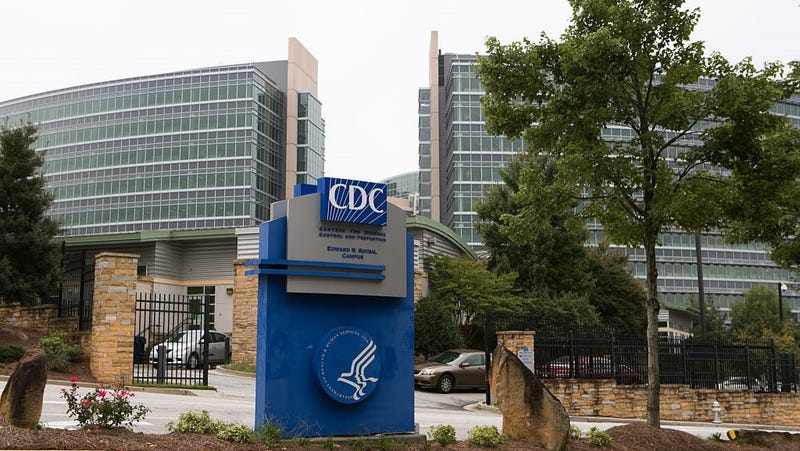
ATLANTA (KNX) — There have been five suspected cases of monkeypox in the United States so far. As the virus continues to appear in other countries around the world, the Centers for Disease Control and Prevention issued a Level 2 warning for travelers to "practice enhanced precautions."
A total of 16 countries throughout Europe, North America, and Australia have reported cases of monkeypox as of May 23, according to the CDC's travel health notice.

Monkeypox has historically occurred in central or west African countries, such as the Democratic Republic of the Congo and Nigeria. Still, none of the people with suspected cases were reported to have been traveling there.
"People usually become infected with the monkeypox virus through contact with the skin lesions or bodily fluids of infected animals or humans (alive or dead), including respiratory droplets, or through contact with materials contaminated with the virus," the CDC said in their notice.
Monkeypox symptoms include fever, headache, muscle aches, and swollen lymph nodes. A rash and skin lesions are likely to form during this time and develop through stages before eventually falling off. People who are positive for monkeypox are usually sick for 2 to 4 weeks.
The CDC gave recommendations for travelers to stay safe and be aware of the spread of monkeypox. People should avoid close contact with sick people and have skin lesions or genital lesions.
Travelers should also avoid contact with living or deceased wild animals and mainly avoid small mammals like rodents (rats, squirrels) or monkeys. In addition, the CDC added that travelers shouldn't eat or prepare wild game meat (bushmeat) or use any lotions, creams, or powders from wild animals in Africa.
The last piece of travel advice that the CDC mentioned was to avoid contact with materials (bedding, clothing, etc.) that could be contaminated by a sick person or that came in contact with an infected animal.
The CDC made it clear that the risk for contracting monkeypox is relatively low for most people and gave instructions to follow if you believe you may be sick.
"Risk to the general public is low, but you should seek medical care immediately if you develop new, unexplained skin rash (lesions on any part of the body), with or without fever and chills, and avoid contact with others," the CDC said.
"If possible, call ahead before going to a healthcare facility. If you are not able to call ahead, tell a staff member as soon as you arrive that you are concerned about monkeypox."
People who believe they may have monkeypox should notify their doctors if they were in contact with another person who may have also had monkeypox. For example, if you are a man that had intimate contact with another man and recently traveled to a place where monkeypox has been reported, contact health officials immediately.
The CDC advise avoiding travel and delaying any planned trips until you see a healthcare professional if you are sick and believe you could have monkeypox.
Follow KNX News 97.1 FM
Twitter | Facebook | Instagram | TikTok



